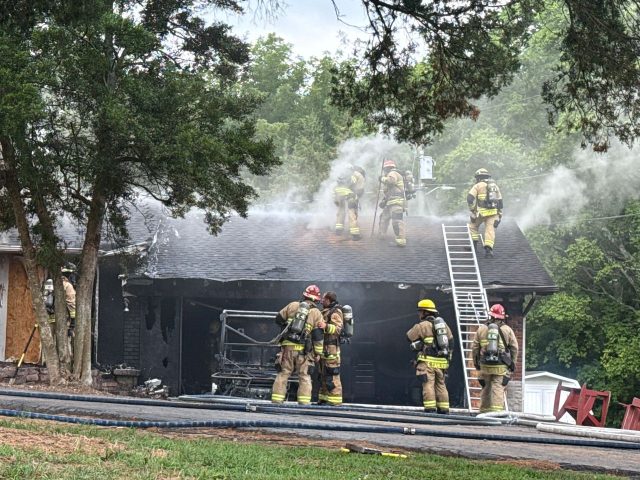Report finds increased food insecurity in Warren
Published 6:00 am Friday, June 7, 2024

- Guests tour Patriot Academy’s new food pantry, already stocked with staple foods like rice, canned vegetables, peanut butter, cereal and more for its inaugural day Wednesday.
Feeding America recently released a “Map the Meal Gap” report that found Warren County’s overall food insecurity rate increased over 3% from 2021 to 2022 – impacting roughly 4,500 individuals.
The increase could, in part, be attributed to rising food costs in the county. FA found the average cost of a meal for a food-insecure person increased from $3.49 to $3.93.
Trending
In total, 19,990 individuals in Warren were food insecure in 2022, a rate of 14.8%. Surrounding counties experienced similar rates: 17.8% in Edmonson, 17.7% in Butler, 15.8% in Allen, 14.1% in Simpson, 18.2% in Barren, and 14.8% in Logan.
The state as a whole saw a rate of 15.7%, roughly 710,000 individuals, with the highest need generally found in eastern Kentucky.
Feeding America, Kentucky’s Heartland Executive Director Charles Dennis told the Daily News that children have been especially hard hit in recent years.
He said the organization’s 2021 data showed four counties out of its 42-county service area had a childhood food insecurity rate above 20%.
In 2022, that number grew to 36.
“It’s working families that (are seeing) rising food costs, rising living expenses, wages that aren’t keeping pace, and it’s really just putting a strain on them and their household,” Dennis said. “They will pay the rent and pay utilities, and usually food is the last thing. We just see a lot of people coming to our partners, and unfortunately, that’s looking like kids are being ensnared in that as well.”
Trending
Dennis said the organization last year piloted six community-supported pantry programs to address that growing need, including one in partnership with Allen County Schools that opened in November.
Initiatives like the BackPack Program, in addition, send children home with a backpack full of food each weekend when they may not have access to school or community meals.
FAKH distributed 461,066 pounds of food last year alone through its Feeding Kids programming. As inflation and food costs rise nationally, Dennis said their work is feeling the pressure.
“While some of our donated food streams are holding tight and consistent, the cost to purchase goods is rising rapidly, just as it is for you and I when we go to the grocery store,” Dennis said.
He added that there’s an ongoing stigma against those who access the services of FAKH and similar organizations. The reality is many of them are working families who can’t make ends meet no matter how hard they try, he said.
He said these problems are increasing not only due to rising costs but also the erosion of pandemic-era policies and support that aimed to be safety nets for vulnerable populations.
“Unfortunately, these numbers are showing us that parts of the country and aspects of our society are kind of bouncing back from the pandemic, but there’s still a large portion that are really struggling,” he said.
– Visit map.feedingamerica.org to further explore the report from FA. To donate or volunteer, visit feedingamericaky.org or contact info@feedamerica.com.






